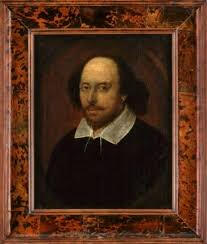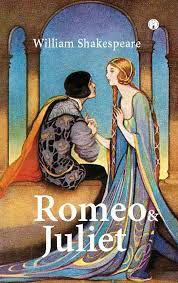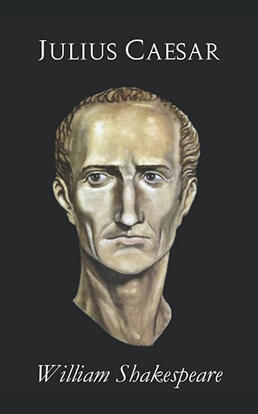William Shakespeare
Presented by Serenity Ross

Shakespeare's importance during the Renaissance
William Shakespeare, was an important figure during the Renaissance. His legacy still lives strongly today. He was one of many writers that influenced this cultural shift. Shakespeare was one of the first playwrights to bring the Renaissance's values to the theatre. He also began a new style of playwriting that mixed comedy and tragedy, which were popular during his time.
How Shakespeare fit into the Renaissance style
Shakespeare embraced the Renaissance style in various ways. For instance, Shakespeare vitalized creating characters with complexity and portrayed characters with human emotions despite their social class. He developed more detail about his characters' feelings and motives. Shakespeare wrote his plays using his knowledge of ancient Greek and Roman classics. Shakespeare's plays brought out the ideas of humanism and included many ideas that were popular during the Renaissance. He also wrote in vernacular English allowing people to understand the language of his works.
Shakespeare's collaborated works
Shakespeare did not always write alone, instead, he frequently worked with other writers and created art. In the 1590s, Shakespeare contributed to a few scenes in plays. Some of these plays include Edward III and Arden of Faversham. Later throughout his career, Shakespeare made many collaborations with people such as Geroge Peele (Titus Andronicus), either Thomas Nashe or Thomas Kyd (Henry VI), Thomas Middleton (Timon of Athens), and George Wilkins (Pericles). He then made three collaborations with young playwright John Flecther on the works of Henry VIII, the Two Noble Kingsmen, and the lost Cardenio
Why Shakepeare's art is still valued today
Shakespeare's works are still relevant in today's society. An important factor for this is that the themes of his writings have been relevant for centuries and can be connected with one's reality. This allows for Shakespeare's legacy to remain strong. His writings also teach us about ourselves and humanity, and some of his works provide evidence that Shakespeare had a deep understanding of human nature. His plays are based upon various topics and provide character diversity. Which allows readers to relate to the story more, thus Shakespeare maintaining popularity.
How Shakespeare influenced other artists
Not only did Shakespeare influence literature, but he also paved a way for many aspiring writers. He spread the idea of characterization, plot development, and genre. He used a set of themes in his works that have influenced modern storytelling. Shakespeare influenced many authors such as Herman Melville, Charles Dickens, Thomas Dickens, and William Faulkner. Romantic poet John Keats was also heavily influenced by Shakespeare, and his poems replicate Shakespeare's style and imagery. Many authors have also used quotes of Shakespeare's plays to title their own works.
Important works created by Shakespeare
William Shakespeare's important works

Hamlet (1599-1601), a tragedy written by Shakespeare, exhibits the themes of love and revenge by telling the story of Prince Hamlet as he attempts to take revenge on his uncle, Claudius, after the murder of his father. Prince Hamlet is visited by a ghost with the likeness of King Hamlet in which it is revealed that Claudius poisoned King Hamlet. Prince Hamlet then vows that he will get revenge for his father.

Romeo and Juliet (1597) explores the love of Romeo Montague and Juliet Capulet. Romeo falls in love with Juliet almost instantly, but Juliet is set to marry another man. One day, Romeo attempts to stop a street fight, leading to the death of Juliet's cousin and for which Romeo is banished. In an attempt to reunite with Romeo, Juliet decides to fake her death. Juliet tries to inform Romeo her plan but it does not reach Romeo in time. Believing that Juliet is truly dead, Romeo takes his own life. Juliet then wakes up beside Romeo's corpse, in which she also takes her life.

Julius Caesar (1599) is a political thriller that explains a story of revolutionaries who plan to murder Julius Caesar due to beliefs that he is a threat to democracy. As Caesar returns from war, the Roman republic is prepared to honor him, but concern rises that too much power is held by one man. Caius Cassius proposes the idea to murder Julius Caesar, which Marcus Brutus is in support of after being persuaded that Caesar's death will benefit the republic. Their plans are finalized and Brutus, Cassius, and their co-conspirators stab Caesar to death on the Ides of March. At Caesar's funeral, Mark Antony decides to turn against the conspirators, forcing them to flee from Rome. Later an army is lead against the conspirators in which Brutus and Cassius kill themselves in spite of being captured.